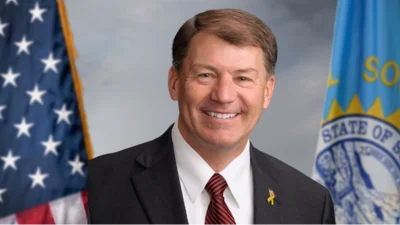Jeff Birkeland | Facebook
Jeff Birkeland | Facebook
Rural electric companies have been hit hard by the recent cancelation of the Keystone Pipeline by President Joe Biden.
A decade-long wait by Jeff Birkeland has proven to be futile after operations were ceased overnight following the president's executive order.
“It basically shut a lot of what we were doing down overnight,” Birkeland told The Epoch Times. “We’re out $90 million, that’s what that means to us.”
Birkeland is the CEO of West Central Electric Cooperative, which is located in Murdo, South Dakota, a small city with a population of less than 1,000 when it was approached by TC Energy in 2008.
His company reached an understanding with TC Energy in 2011 to build a transmission line and two substations that would provide power along the Keystone XL route. West Central Electric was set to start producing power for pump stations along the XL route as early as November 2011, before the pipeline was put on hold. They resumed operations in 2019 after being granted a presidential permit to construct and operate the XL pipeline.
The abrupt cancelation of the project affects both the rural communities and the companies at large.
"If they had been able to start work on the project in 2012, school districts in the area would have received $1.7 million in tax revenue," he said. South Dakota will also miss out on $4 million in state sales taxes. And if the entire pipeline was up and running, it was expected to generate more than $100 million in property tax revenue along the route. The pipeline would also contribute $3.4 billion to the GDP of the United States on an annual basis," The Epoch Times reported.
West Central Electric Cooperative could see a huge loss; the company has an estimated $14 million worth of material in their warehouse. Other companies in Murdo have also been affected as they had spent money toward the construction of the XL pipeline.
Kit Talich, one of the staff engineers, expressed his disappointment over the shutdown of the project.
“We have been working on this project on and off — through the starts and stops and delays — for about 12 to 13 years now,” Talich told the Epoch Times. “We put a lot of time into it … so it was a little disappointing to see something like that pulled away with a swipe of a pen and 10 minutes after [Biden was] sworn in.
Adding, “I would like to see it revived, it would help the local communities a lot. Again, it’s what Washington wants to do — they don’t care about us out here too much.”
The Biden administration has made it clear it wants to invest in renewable energy amid the country's "climate crisis." Many electric co-ops are also turning toward renewable energy. There has been an increase in the use of natural gas and renewable energy, which has helped to reduce the co-ops’ carbon dioxide emissions by 18 percent from 2009 to 2019, according to the National Rural Electric Cooperative Association.
Birkeland remains optimistic over the future of the Keystone project and hopes to meet the president to discuss his side of the story.




 Alerts Sign-up
Alerts Sign-up